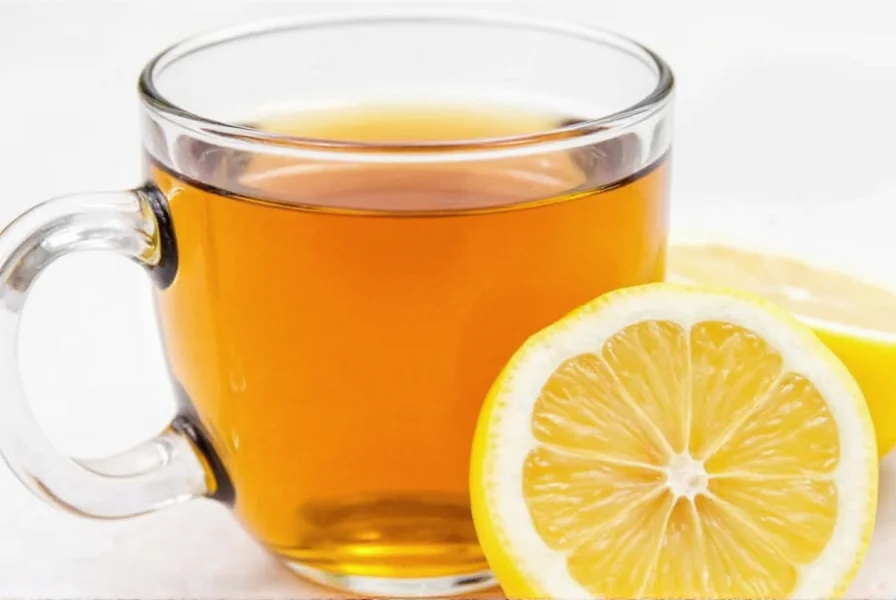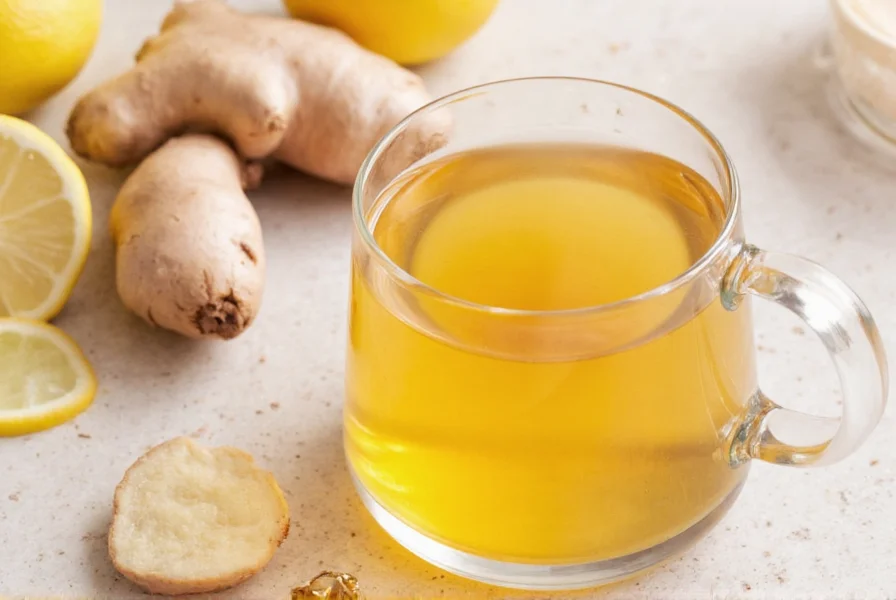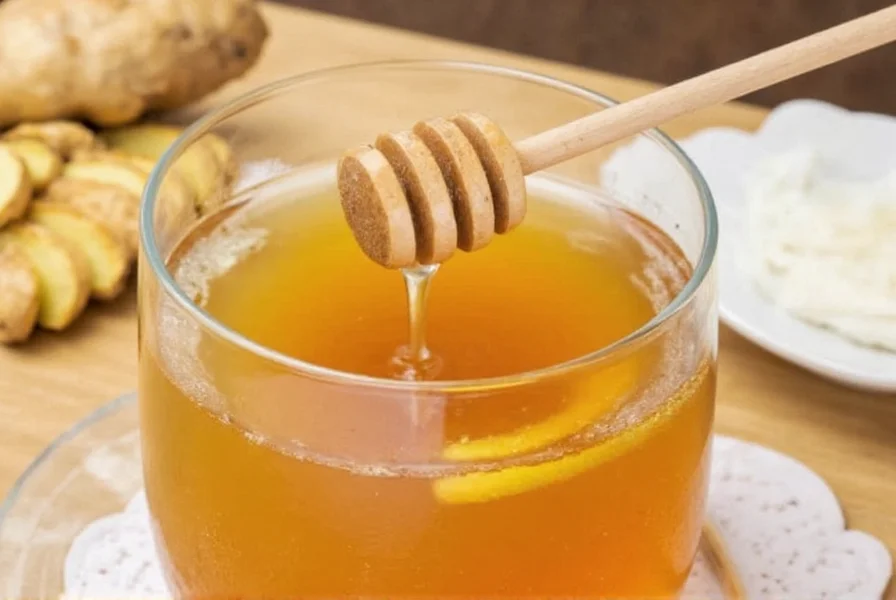Ginger lemon tea with honey has become a staple in home remedy cabinets worldwide. This simple yet powerful beverage combines three natural ingredients known for their potential health properties. While often used as a comforting drink during cold season, its benefits extend beyond seasonal wellness. Understanding the science behind this popular concoction helps separate evidence-based benefits from anecdotal claims.
The Science Behind Ginger Lemon Tea Ingredients
Ginger contains bioactive compounds like gingerol that have demonstrated anti-inflammatory and antioxidant effects in scientific studies. Research published in the Journal of Ethnopharmacology confirms ginger's effectiveness for nausea relief, particularly for pregnancy-related morning sickness and chemotherapy-induced nausea. Lemon contributes vitamin C and flavonoids, while honey—especially raw varieties—contains antimicrobial properties and has been shown in multiple studies to reduce cough frequency and severity in children.
| Ingredient | Key Compounds | Research-Supported Benefits |
|---|---|---|
| Ginger | Gingerols, shogaols | Nausea relief, anti-inflammatory effects |
| Lemon | Vitamin C, flavonoids | Antioxidant properties, immune support |
| Honey | Phenolic compounds, hydrogen peroxide | Cough suppression, wound healing properties |
How to Make Ginger Lemon Tea with Honey: A Step-by-Step Guide
Creating an effective ginger lemon tea with honey requires attention to preparation details. For optimal extraction of ginger's beneficial compounds, slice or grate fresh ginger rather than using powder. The ideal ratio for ginger lemon tea with honey recipe follows:
- Peel and thinly slice 1-2 inches of fresh ginger root
- Bring 2 cups of water to a rolling boil
- Add ginger slices and simmer covered for 10-15 minutes (longer for stronger tea)
- Remove from heat and add juice from half a lemon
- Stir in 1-2 teaspoons of raw honey after tea has cooled slightly (below 140°F/60°C to preserve honey's beneficial enzymes)

When Ginger Lemon Tea with Honey May Help
This beverage shines in specific situations where evidence supports its use. For ginger lemon tea with honey for cold symptoms, research indicates honey provides meaningful cough relief, particularly at night. The American Academy of Pediatrics recommends honey (for children over 1 year) as a first-line treatment for coughs. Ginger's anti-nausea properties make this tea valuable during stomach flu or motion sickness. Many people find ginger lemon tea with honey for sore throat provides soothing relief due to honey's coating effect and ginger's anti-inflammatory properties.
Important Considerations and Limitations
While generally safe, certain precautions apply when consuming ginger lemon tea with honey. Honey should never be given to infants under 1 year due to botulism risk. People with ginger allergies or those taking blood thinners should consult doctors before regular consumption. The acidity of lemon may erode tooth enamel over time—consider drinking through a straw. Remember that ginger lemon tea with honey side effects are rare but can include heartburn or mouth irritation in sensitive individuals.
Maximizing Benefits: Timing and Variations
Understanding when to drink ginger lemon tea with honey enhances its potential benefits. Consuming it first thing in the morning may support digestion throughout the day. Drinking it before travel can help prevent motion sickness. For respiratory symptoms, evening consumption promotes better sleep by reducing nighttime coughing. Variations like adding turmeric for additional anti-inflammatory effects or using manuka honey for enhanced antimicrobial properties can address specific needs while maintaining the core ginger lemon tea with honey recipe foundation.

Evidence vs. Anecdote: Separating Fact from Folklore
While many claim ginger lemon tea with honey helps with weight loss, scientific evidence for this specific effect remains limited. Similarly, assertions about detoxification lack scientific basis—your liver and kidneys naturally handle detoxification. However, the beverage's low calorie content makes it a healthy alternative to sugary drinks, which can support weight management indirectly. The most well-documented benefits remain nausea relief, cough suppression, and potential anti-inflammatory effects.
Frequently Asked Questions
How often can I safely drink ginger lemon tea with honey?
Most adults can safely enjoy 1-3 cups daily. Excessive ginger consumption (more than 4 grams daily) may cause digestive discomfort. Those with gallstone issues or on blood thinners should consult their healthcare provider before regular consumption.
Can ginger lemon tea with honey help with a sore throat?
Yes, multiple studies confirm honey's effectiveness for soothing sore throats and reducing cough frequency. The warm liquid provides immediate comfort while honey's antimicrobial properties may help combat throat irritation. Ginger's anti-inflammatory effects complement this relief.
What's the best type of honey to use in ginger lemon tea?
Raw, unprocessed honey retains more beneficial enzymes and compounds. Manuka honey offers additional antimicrobial properties, though it's more expensive. Avoid heating honey above 140°F (60°C) to preserve its beneficial properties—add it after the tea has cooled slightly from boiling.
Does ginger lemon tea with honey really boost immunity?
While no single food dramatically boosts immunity, the combination provides antioxidants and compounds that support immune function. Vitamin C from lemon and anti-inflammatory compounds from ginger contribute to overall immune health, but should be viewed as part of a balanced diet rather than a specific immunity booster.
Can I make ginger lemon tea with honey ahead of time?
Yes, you can prepare a larger batch and store it in the refrigerator for up to 3 days. However, add honey only when serving, as prolonged storage with honey may reduce its beneficial properties. Reheat gently without boiling to preserve the active compounds.











 浙公网安备
33010002000092号
浙公网安备
33010002000092号 浙B2-20120091-4
浙B2-20120091-4